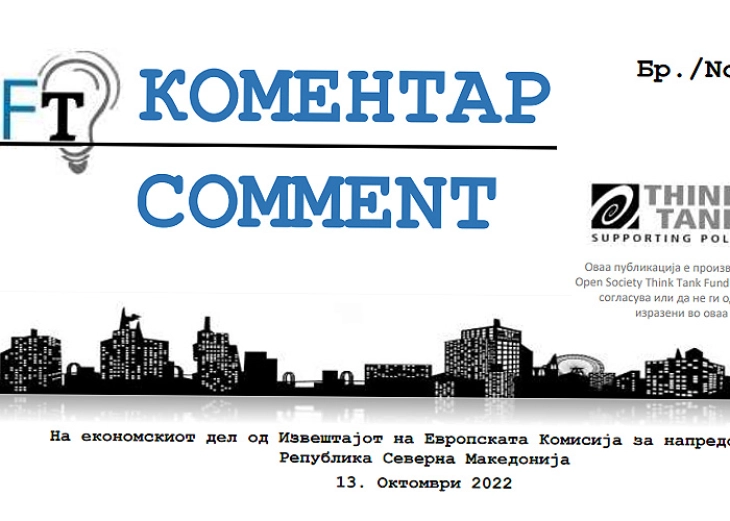Finance Think: EC Report offers realistic depiction of Macedonian economy, need for key reforms more pronounced

Skopje, 13 October 2022 (MIA) – The European Commission Progress Report offers a realistic depiction of the state of Macedonian economy after the pandemic and during the energy crisis. This time, however, it is noticeable that the critical tone on key reform priorities, which are reiterated in every report because of their slow realization or postponement, is more pronounced, said Finance Think on Thursday.
Finance Think says in its Comment that the report emphasizes the need for the energy crisis measures to be targeted to the vulnerable groups of citizens and businesses.
“Our recent overview of the October 2022 measures shows that out of 19 measures, only three can be considered targeted, while nine of them, even though they soften the blows of the crisis, are regular measures applied in normal times and/or represent a legal obligation (such as, for example, the regular adjustments of pensions and social welfare). This unfavorable picture of the measures is entirely explained by an assessment in the Report according to which: ‘Shortcomings in the planning, implementation, and monitoring of measures, as well as in their transparency and accountability, impact on their effectiveness.’ (pg. 52)” said Finance Think in their comment.
Finance Think points out that the report also notes the large number of tax exemptions that erode the tax base, while criticizing the lack of progress in tackling the informal economy, more specifically in the implementation of the 2018-2022 Strategy for the Formalization of the Informal Economy.
“In our March 2022 policy brief no. 58: ‘How large is our gray economy? How do key economic policies affect it?’ we treated the issue of the informal economy in a broader sense and found that it had suffered the largest blows (reductions) when the income tax was reduced in 2008 and when the minimal wage was adopted in 2012, and that any gains from the reduction of the informal economy cannot be sustained without robust and impartial functioning of the institutions in charge of tackling it. In doing so, we pointed out that without visible results in the field of the informal economy, as the report itself indicates, imposing new and higher taxes will only lead to its further increase,” said Finance Think.
According to the think tank, the report also points out that the scope and objective of the state aid provided to companies through the Economic Growth Plan, as the most important instrument of horizontal aid, is unclear and no impact assessment of the State aid has been made since its introduction.







